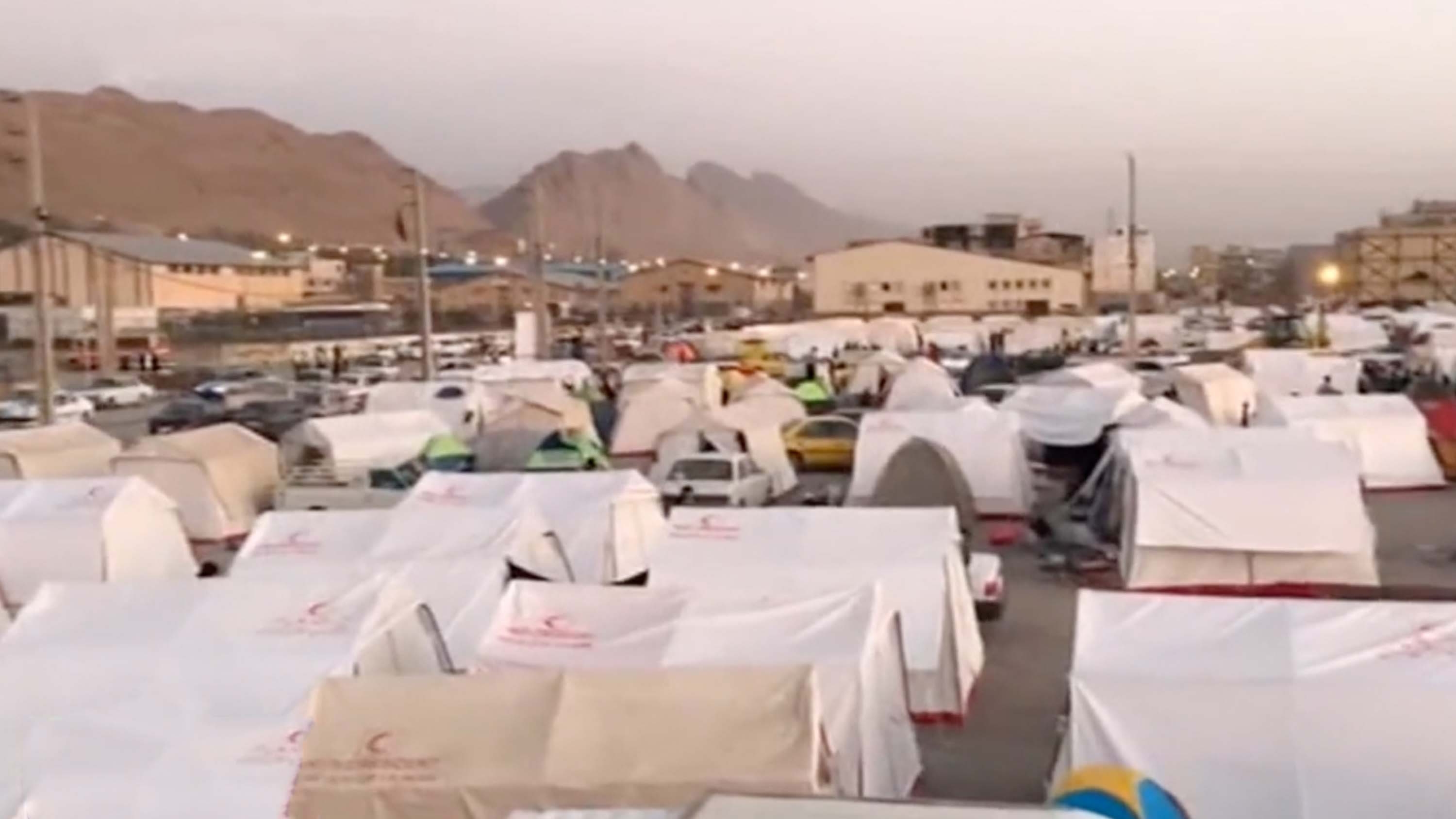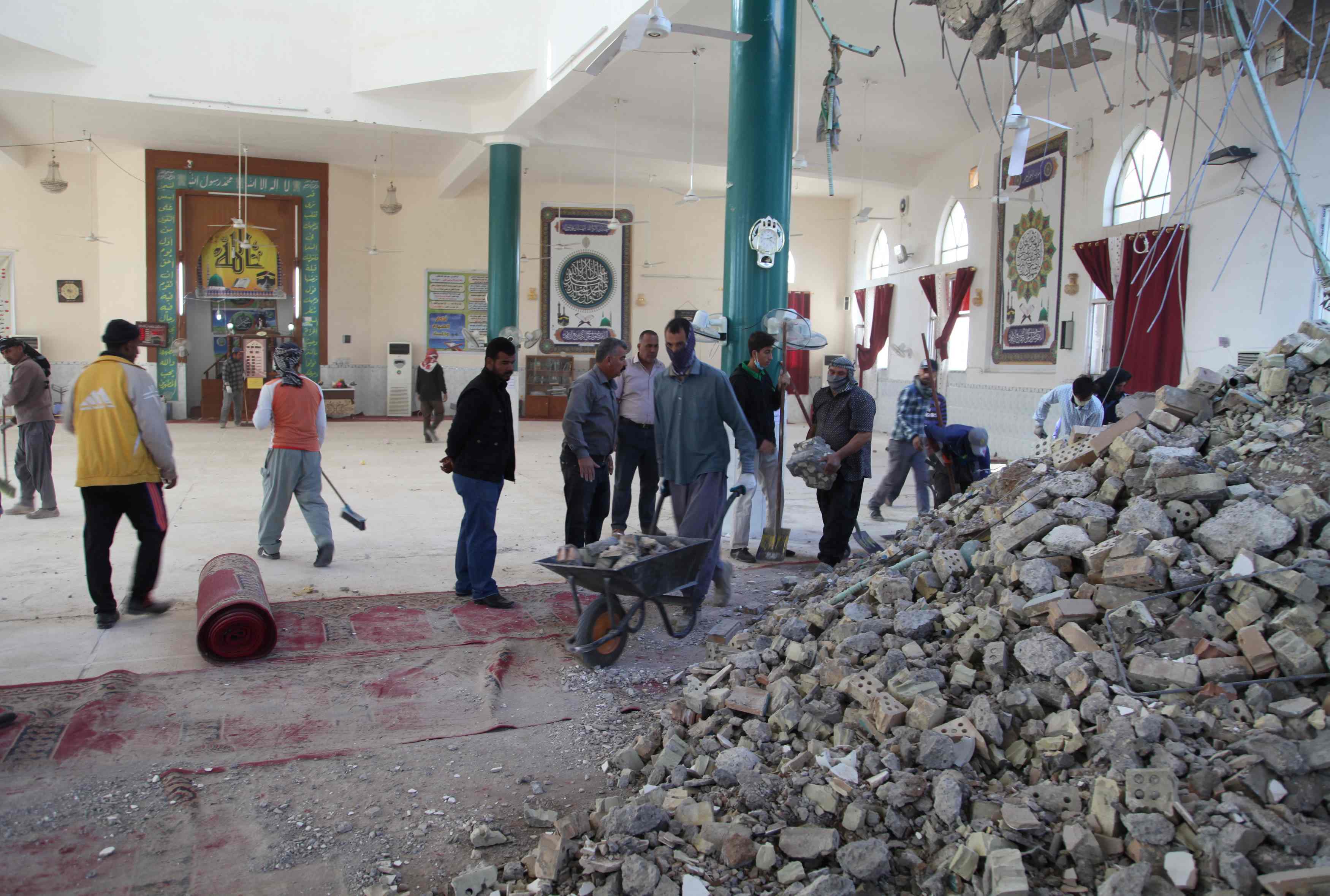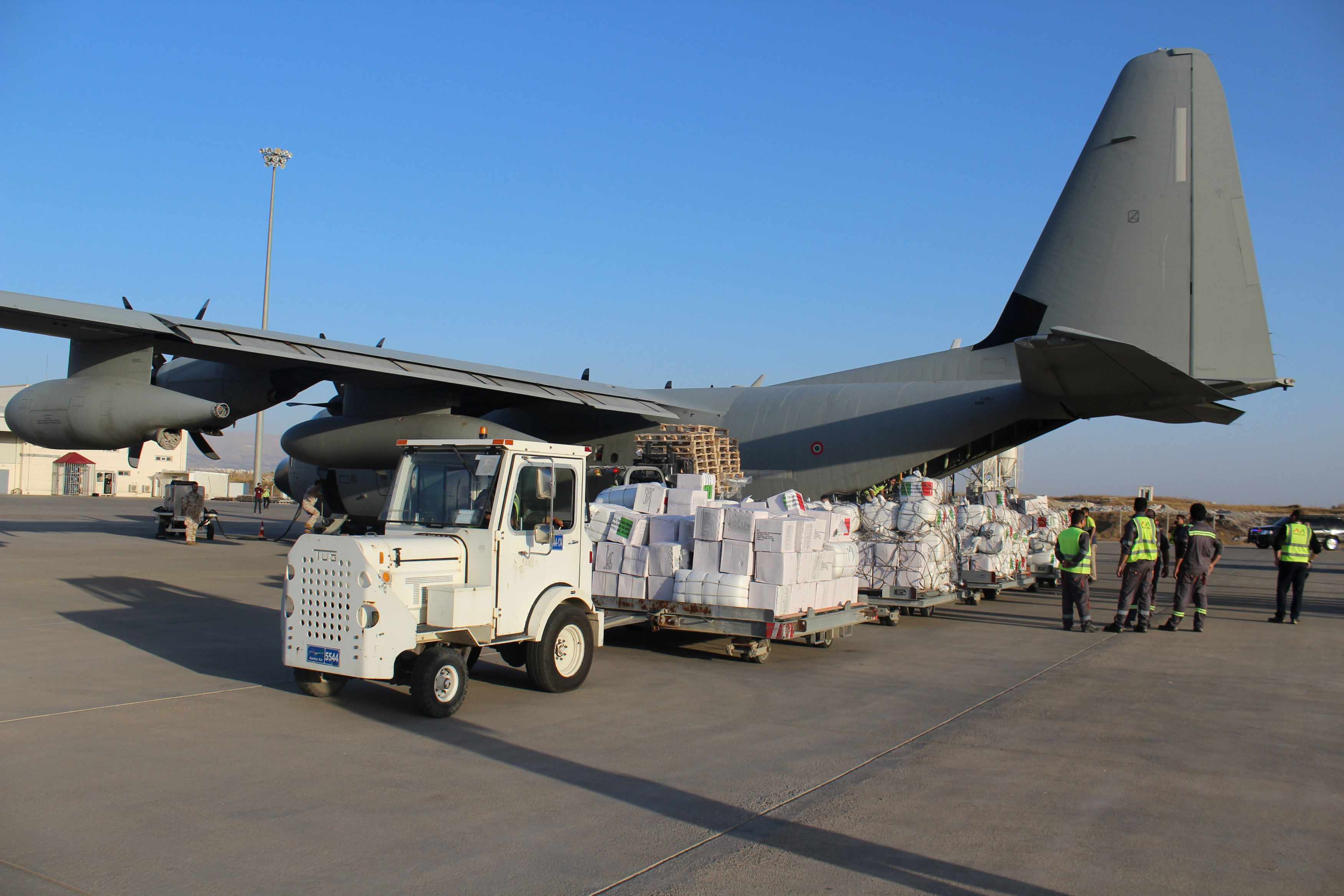
Politics
23:09, 18-Nov-2017
Quake survivors in Iran struggle to get lives back on track
By Chuck Tinte

People who survived the magnitude-7.3 earthquake in western Iran are still struggling to put the pieces of their lives back together.
More than 400 people were killed in the quake near the nation's border with Iraq this week.
As temperatures plunge in the earthquake-hit province of Kermanshah, survivors scrambled for food, water and shelter.

People remove rubble from a damaged mosque following an earthquake in Khanaqin, Diyala Province, Iraq, November 13, 2017. /Reuters Photo
People remove rubble from a damaged mosque following an earthquake in Khanaqin, Diyala Province, Iraq, November 13, 2017. /Reuters Photo
But the struggle doesn't end there.
"They bring aid, but it's stolen. There are many thieves here," said one resident of hard-hit Sarpol-e-Zabab.
Residents also found themselves having to adjust to life in areas that are still in shambles.
Not all infrastructures have collapsed completely. But due to the extent of the damage, and recurrent aftershocks, many residents said they prefer to stay in tents.
"Our biggest problem is there's no tent where we can stay. In the past two days, we've had to live in our car, often in the cold. The government sent some tents here, but so many people rushed to grab them. There was nothing left when we got there," said a local named Nesa.

Workers unloading humanitarian aid from Italian government to Iraqi victims of an earthquake that struck on the border of Iraq and Iran on Sunday, are seen next to an Italian military aircraft, at Sulaimaniyah Airport, in the semi-autonomous Kurdistan region, Iraq, November 15, 2017. /Reuters Photo
Workers unloading humanitarian aid from Italian government to Iraqi victims of an earthquake that struck on the border of Iraq and Iran on Sunday, are seen next to an Italian military aircraft, at Sulaimaniyah Airport, in the semi-autonomous Kurdistan region, Iraq, November 15, 2017. /Reuters Photo
Icy rains are forecast to hit Sarpol-e-Zahab soon, with many residents sleeping in makeshift shelters outdoors.
Field hospitals have been erected to bring help closer to those who need it.
Survivors in other towns and villages nestled in the Zagros Mountains also face tough conditions, with aid struggling to get through.
The government said it will allocate a sizeable fund for relief and reconstruction efforts

SITEMAP
Copyright © 2018 CGTN. Beijing ICP prepared NO.16065310-3
Copyright © 2018 CGTN. Beijing ICP prepared NO.16065310-3